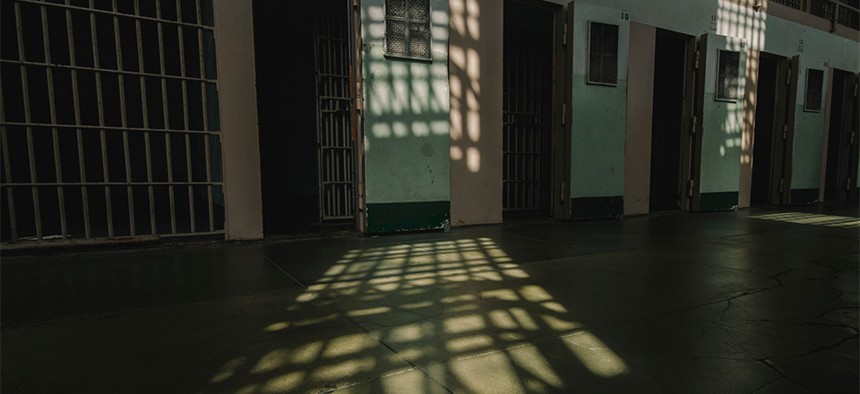
Thinkstock
Call It the Bureau of Corrections Instead of the Bureau of Prisons, Lawmakers Say
U.S. prisons are a mess. A bipartisan task force is working on the problem.
Prisons in the United States are something of a disaster—both in terms of justice and the budget.
Some background:
- Roughly 1,000 California inmates may be released this year before they complete their sentences because of a court order based on severe overcrowding in the state's prisons. At the same time, in Louisiana, a federal judge is looking at whether three death-row inmates were put at risk of illness or death due to high heat at the state penitentiary.
- Incarceration rates for black Americans dropped from 2000 to 2009, but in 2009 black men were still 6.4 times as likely to be incarcerated as white men. Black inmates now account for about 38 percent of all inmates in state and federal prisons, while white inmates account for 34 percent. The United States has the highest incarceration rate in the world, and the largest inmate population. In 2010, drug offenders made up 51 percent of the federal prison population, and the increase in time served by drug offenders accounted for a third of the total federal prison population growth from 1998 to 2010.
- There are 2.3 million inmates in the U.S., at a cost of $55 billion a year to the federal government. Some 218,000 inmates are in federal prisons, with an average minimum-security cost of $21,000 annually. The Obama administration requested $6.9 billion for the Bureau of Prisons in fiscal 2013. At the same time, the private prison industry has boomed, growing by 1,600 percent between 1990 and 2010 and bringing in about $3 billion in annual revenue.
So, what can be done? Two bipartisan members of Congress recently put forward an idea: Change the name of the Bureau of Prisons to the Bureau of Corrections.
Those members—Reps. Jason Chaffetz, R-Utah, and Hakeem Jeffries, D-N.Y.—introduced H.R. 2984 just before August recess. In introducing the bill, Chaffetz said:
This small change will help the bureau remember that its mission is not just to house people, but also to rehabilitate prisoners such that they are productive members of society when released.
Jeffries called it "an important step in the right direction toward fundamentally changing our approach to rehabilitation and successful reentry into society."
It also, of course, would do little to help prison overcrowding, sentencing laws that are racially imbalanced, and the rapid growth of a private prison industry that has been plagued with problems. It also wouldn't help the huge price tag for the federal government.
That's where the bipartisan House Judiciary Committee's Over-Criminalization Task Force is trying to step in. The task force, which was approved by a voice vote in May and began work in June, is authorized through the end of the year. The group's goal is "to assess our current federal criminal statutes and make recommendations for improvements." Its stated intention is to cut down the estimated 4,500 federal crimes in the U.S. code.
The task force has already generated some bipartisan praise. An American Civil Liberties Union spokesman said, "The task force has a unique opportunity for meaningful reform of our federal criminal system" and that the ACLU hopes "it prioritizes restoring fairness to the criminal justice system." The conservative Heritage Foundation called the task force "a definite step in the right direction."
And the task force isn't the only meaningful congressional activity. In March, Sens. Patrick Leahy, D-Vt., and Rand Paul, R-Ky., introduced legislation that would give judges more discretion in sentencing federal crimes. A version of that bill is also under consideration in the House. Outside of Congress, the Justice Department pushed for sentencing reform in a July letter to the U.S. Sentencing Commission.
It, of course, remains to be seen whether Congress will actually be able to get anything accomplished. And this Congress has a particularly lousy track record on that count. But with the criminal justice system nearly tearing apart at its seams, there appears to be real, bipartisan energy behind actually getting something done. Even if it's just changing a name.







